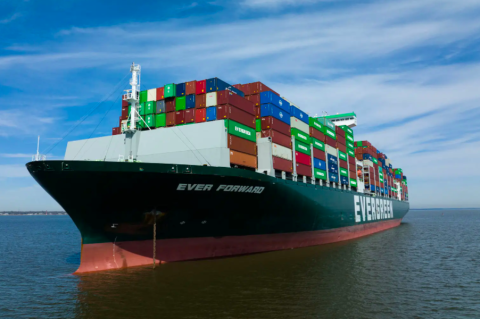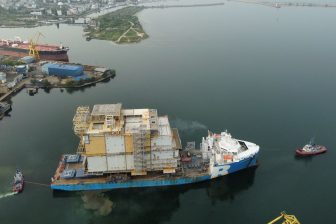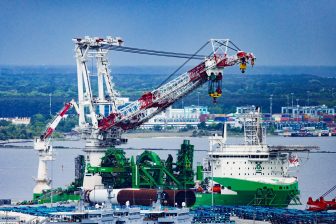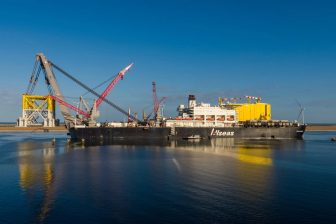
Salvagers hope removing containers will help free grounded cargo ship
The US Coastguard is leading a renewed attempt to free the stricken Ever Forward, a cargo ship which ran aground near Baltimore last month, by removing containers to lighten its load.
It’s been three weeks since the 1,100 foot-long ship became lodged while traveling south in Chesapeake Bay. Efforts to dislodge it have so far proved unsuccessful.
Salvage company Donjon Smith was initially given the task by US Coastguard to free the 12,000 TEU Ever Forward, but it has been a particularly challenging operation, as the ship’s bow has driven deep into the river mud.
This is the latest mishap to befall the ship’s owners, Evergreen, which also owns Ever Given, the cargo ship which famously ran aground in the Suez Canal last year, blocking one of the world’s most vital shipping lanes for weeks.
Evergreen said that in the light of the increasing costs arising from the operations, it was declaring ‘General Average’, an established principle of maritime law requiring the shipowner to pay a share of the salvaging costs.
The US Coastguard has said that even with the help of several tugs and two pulling barges, the salvage team is not able to overcome the ground force of the Ever Forward in her current condition.
It added that teams would continue a dredging operation to dig around the cargo ship to a depth of around 43 feet. They will then bring in two crane barges to lift containers off the Ever Forward. Containers will be taken from both sides of the ship during the day, and lowered onto barges.
They will then take the containers back to their original loading place, Seagirt Marine Terminal in Baltimore. Depending on weather conditions the operation is expected to take a couple of weeks.
Nobody was injured and the ship was not significantly damaged when it ran aground on 13 March after leaving Baltimore. The incident happened outside the shipping lane and so the vessel has not been blocking traffic.
Owners of cargoes being removed may be required to pay a bond to recover their goods once they have been returned to port.
You just read one of our premium articles free of charge
Register now to keep reading premium articles.




